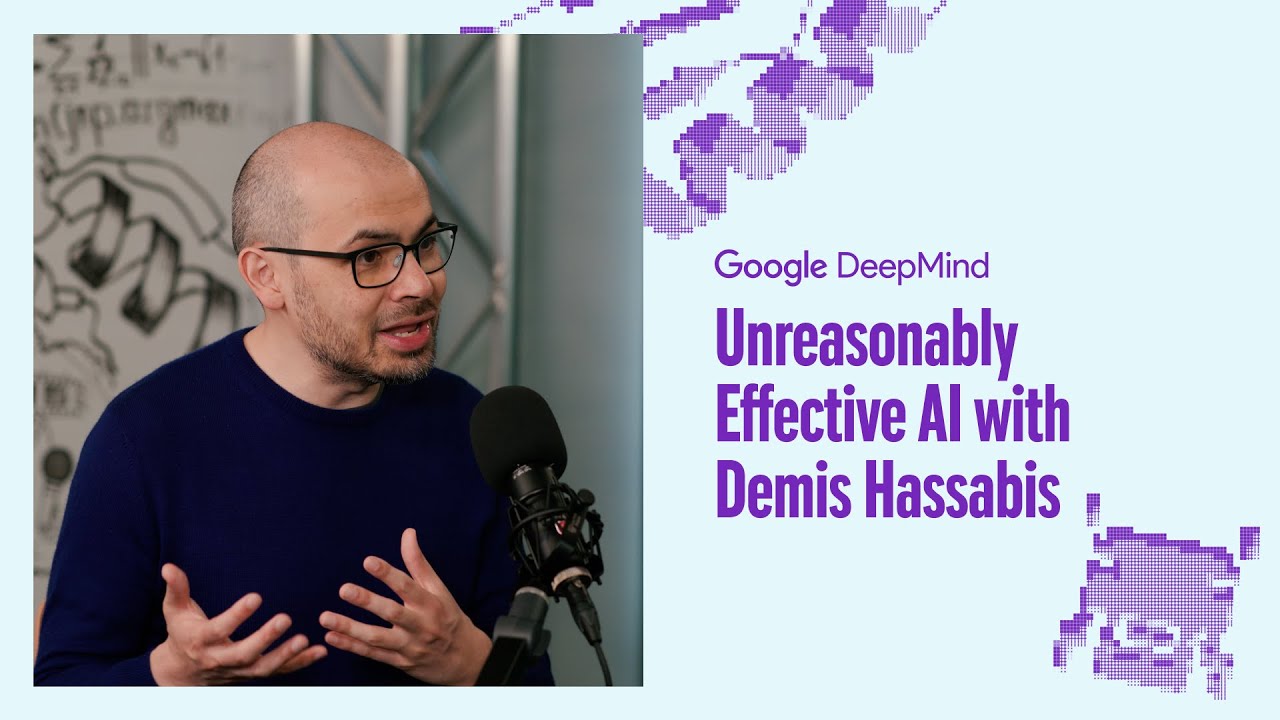In the Google DeepMind podcast, Demis Hassabis discusses the evolution of AI research at DeepMind, highlighting advancements in artificial general intelligence (AGI) and the development of new models like Gemini, while addressing the dual nature of public interest in AI and the importance of grounding in real-world contexts. He emphasizes the need for caution regarding the hype around AI capabilities, advocates for international cooperation on ethical guidelines, and reflects on the transformative potential of AI in science and society.
In the latest episode of the Google DeepMind podcast, hosted by Professor Hannah Fry, the focus is on the evolution of AI research at DeepMind, particularly under the leadership of co-founder and CEO Demis Hassabis. Since its acquisition by Google, DeepMind has transitioned from a small research lab to a central player in Google’s AI strategy, with significant advancements in artificial general intelligence (AGI) and the introduction of new AI models like Gemini. The podcast highlights the lab’s ongoing efforts to apply AI to various scientific domains, including drug discovery through its spin-off company, Isomorphic Labs, and the development of AI agents capable of learning tasks independently.
Demis Hassabis discusses the dual nature of the recent surge in public interest in AI, noting that while it brings increased scrutiny and noise, it also signifies that the technology is ready to impact everyday lives positively. He reflects on the rapid acceptance of AI, particularly through chatbots and language models, which have demonstrated an “unreasonably effective” ability to understand and generate human language. This effectiveness was unexpected, as many experts believed that deeper conceptual understanding and grounding in real-world experiences were necessary for such capabilities.
The conversation delves into the concept of grounding, which refers to the connection between abstract representations and their real-world meanings. Hassabis explains how modern AI systems, despite learning primarily from language, have managed to infer real-world connections, albeit with limitations. He emphasizes that while current models can generate impressive outputs, they still struggle with tasks requiring long-term planning and agency, highlighting the need for future advancements in these areas.
Hassabis also addresses the hype surrounding AI, suggesting that while there is overhype regarding immediate capabilities, the potential long-term impacts of AGI are still underappreciated. He advises caution for investors and entrepreneurs entering the AI space, emphasizing the importance of technical diligence and understanding the technology’s nuances. The discussion touches on the development of Gemini, a multimodal AI model designed to process various types of data, and the importance of combining insights from different research divisions within Google.
Finally, the podcast explores the ethical implications of AI development, particularly concerning safety and regulation. Hassabis advocates for international cooperation in establishing guidelines for AI deployment, especially as the technology approaches AGI. He acknowledges the challenges of balancing open-source initiatives with the need to prevent misuse of powerful AI systems. The episode concludes with a reflection on the future of AI, emphasizing the potential for transformative advancements in science and society, while also recognizing the responsibility that comes with such power.
It has been a few years since Google DeepMind CEO and co-founder, Demis Hassabis, and Professor Hannah Fry caught up. In that time, the world has caught on to artificial intelligence—in a big way. Listen as they discuss the recent explosion of interest in AI, what Demis means when he describes chatbots as ‘unreasonably effective’, and the unexpected emergence of capabilities like conceptual understanding and abstraction in recent generative models.
Demis and Hannah also explore the need for rigorous AI safety measures, the importance of responsible AI development, and what he hopes for as we move closer towards artificial general intelligence.
—
Want to share feedback? Have a suggestion for a guest that we should have on next? Why not leave a review on YouTube and stay tuned for future episodes.
Thanks to everyone who made this possible, including but not limited to:
Presenter: Professor Hannah Fry
Series Producer: Dan Hardoon
Editor: Rami Tzabar, TellTale Studios
Production & Editorial support: Emma Yousif
Music composition: Eleni Shaw
Camera Director and Video Editor: Tommy Bruce
Audio Engineer: Darren Carikas
Video Studio Production: Nicholas Duke
Video Editor: Bilal Merhi
Video Production Design: James Barton
Commissioned by Google DeepMind
